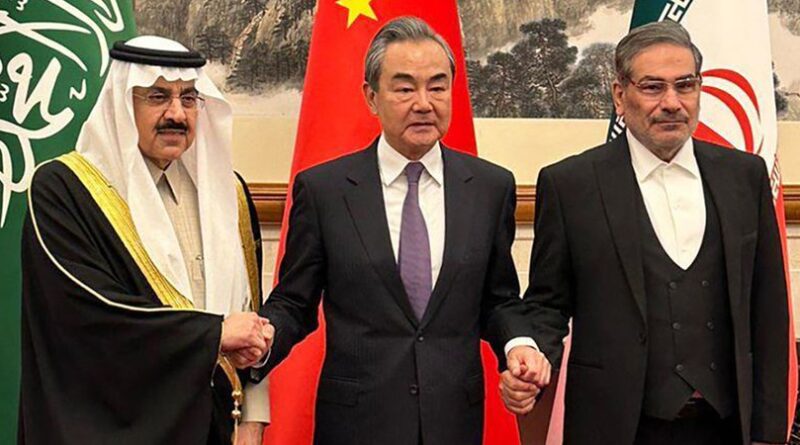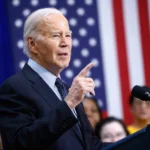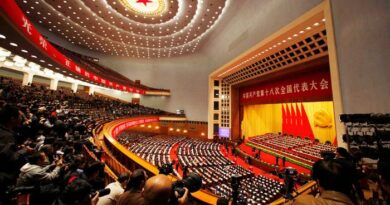Iran and Saudi Arabia restore their bilateral relations in Beijing
EUGENIO GARCIA GASCON
Iran and Saudi Arabia announced this Friday the reestablishment of bilateral relations that both countries abruptly interrupted in 2016. The agreement was reached in Beijing, so that China scores a significant diplomatic goal through which it continues to establish its influence in the Middle East to the detriment of from United States. Surprised by the announcement, in Washington they reacted shortly after with an uncomfortable, lukewarm and inconsequential response.
How can the announcement change the political and security context of the Middle East? It is still early to glimpse the scope of the agreement, although there are several fronts in which the two large Muslim countries are immersed.
Of course, the mere fact that the agreement has crystallized in Beijing and that the Iranian and Saudi National Security advisers have negotiated it there represents a considerable success for Chinese diplomacy in its objective of influencing world problems, and in this case in the Middle East, something that keeps the United States in suspense. It can be said that this pact gives legitimacy to Iran in the region, but also to Beijing.
Saudi Arabia and Iran are the great rivals in the terrible crisis in Yemen, and there is a possibility that the normalization agreement will have a positive impact on that war that has caused so much damage to the local population. There is no doubt that the Chinese could continue to mediate between the parties in relation to Yemen, where there have been more than 150.000 deaths. The intensity of the conflict has subsided and now a more lasting solution may be within reach for the Iranians and Saudis. The two countries also have conflicting interests in Lebanon, although it does not seem easy that their interests can be reconciled there, at least in the short term.
As for Yemen, a Washington spokesman said in his first response statement that the Beijing agreement could be useful to end this conflict. These words can be interpreted as a cession by the US to the Chinese on a highly contentious front that the Americans have been unable to resolve and now recognize.
Relations between Saudi Arabia and Israel, in theory non-existent, could materialize in a not too long period of time, as the Hebrew media have been suggesting for many months. This week the American newspapers have revealed that Riyadh demands two things from the United States before formally recognizing the Zionist state: guarantees for its national security, a point that, although the media does not mention it, includes guarantees for the future of Prince Mohammad bin Salman as king, and also the green light for the development of a civilian nuclear program. The Palestinian issue is no longer crucial for Saudi Arabia and would not be a major obstacle to the exchange of embassies with Tel Aviv.
The Beijing pact contemplates the restoration of the 1998 economic agreements and the 2001 security agreements, which in both cases were frozen in 2016. The embassies in Tehran and Riyadh will reopen within two months, and the two countries They undertake not to interfere in the internal affairs of the other party.
Bilateral relations collapsed when Saudi Arabia executed Shiite cleric Nimr Bakr al-Nimr. In Saudi Arabia there is a substantial Shiite minority, approximately 30 percent of the population, which logically maintains good relations with Iran and this has been a source of periodic friction and conflict. The non-interference pledge also means that Iran will not meddle in issues relating to the kingdom's delicate political situation, while the Saudis will not maneuver alongside Israel against Iran, so both sides win.
The announcement was met with almost apocalyptic declarations in Israel. Throwing a poisoned dart at Benjamin Netanyahu, former Prime Minister Naftali Bennett called it a "resounding failure" of Hebrew diplomacy and a "political victory for Iran." Other Israeli officials, especially opposition leaders, stressed that it defeats the primary objective of creating a strong coalition of Middle Eastern countries that will confront Iran in all fields, including the military. Right now, Israel is going through a serious institutional crisis that numerous notables of almost all political persuasions, including the government coalition led by Benjamin Netanyahu, consider "self-destructive."
Although some analysts have pointed out that the United States is losing influence in the region, it is not clear if the Beijing agreement is the result of a momentary lower interest of the Americans of a tactical nature, or responds to a more serious strategic nature in that region so volatile.
In any case, Washington never tires of putting pressure on the countries in the area, including Israel, to cancel or limit their bilateral relations with Beijing as much as possible, so the fact that the Chinese have reached this pact is a bad sign. for US interests.
Eugenio Garcia Gascon He has been a correspondent in Jerusalem for 29 years and is a Cirilo Rodríguez journalism awardee.













